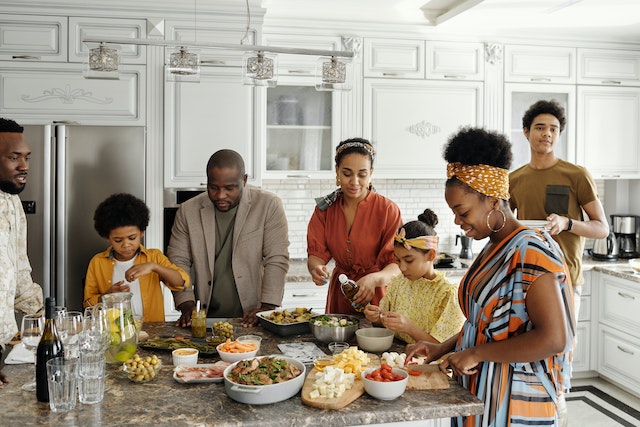Do you want to know more about creating an eco-friendly kitchen? 77% of people want to live more sustainably, with concern for the environment being the driving motivator (40% are concerned about plastic pollution, 39% biodiversity loss, and 38% climate change), Forbes reports.
Transitioning to an eco-friendly kitchen is a key way to minimize your impact on the environment, while also helping you save money at the same time.
By focusing on adopting sustainable cooking, cleaning, and water conservation techniques, you can successfully create a greener, healthier kitchen.
Get Cookin’ the Green Way: Energy-Efficient Tips for Your Kitchen
It’s easy to needlessly waste energy while cooking. Fortunately, energy-efficient techniques are a simple way to create a greener kitchen. So, for example, only use the oven when it’s really necessary.
Start eating more meals that require minimal prep and can be eaten cold – think: sandwiches, salads, and cold soups.
Small meals can be reheated in the microwave (using the microwave can reduce cooking energy by 80%). Similarly, pressure cookers can also help save energy as they cut cooking time by 70%. This is useful knowledge to have if an eco-friendly kitchen is your goal.
It’s also time to break the habit of preheating. Most modern ovens heat-up fast, which renders preheating pointless. Most meals can be put straight into a cold oven, and you can even switch it off again a few minutes early; the residual heat is enough to finish cooking the food.
Ditch the Chemicals and Keep Your Kitchen Sparkling with Eco-Friendly Cleaners
Keeping a clean, eco-friendly kitchen is possible without having to rely on conventional cleaning products packed with hazardous chemicals. In addition to potentially irritating the eyes, throat, and skin, these chemicals also pollute the air and waterways, and contribute to climate change.
Fortunately, green cleaners are an effective solution that’s better for your health, the environment, and your bank balance. For example, simply mix together equal parts vinegar and water in a spray bottle to create an eco-friendly all-purpose cleaner.
And, if you need a scrub capable of dislodging stubborn stains and debris, mix baking soda with a little water until you form a paste. All you then need is a brush or sponge and the paste can be used to dislodge caked-on dirt and stains on hard surfaces, stoves, and sinks.
Don’t Let Your Water Go Down the Drain: Creative Ways to Save Water in Your Kitchen
The average family wastes as much as 180 gallons of water a week due to household leaks. So, fixing any leaks as soon as you spot them is a valuable way to prevent water waste.
Also, try and run the tap as little as possible (1,040,000,000 gallons of water is wasted in the U.S. every day in the U.S. due to running faucets).
Fill a bowl of water to wash fresh produce and prevent excess water usage. You can even recycle your kitchen water; leftover water used from cooking can be used to water plants in your garden. Rice water is particularly healthy for plants as the starch promotes the growth of good bacteria.
Transitioning to an eco-friendly kitchen doesn’t have to be difficult. By adopting energy-efficient cooking practices, greening your cleaning routine, and saving water, you can successfully make your kitchen more sustainable.


